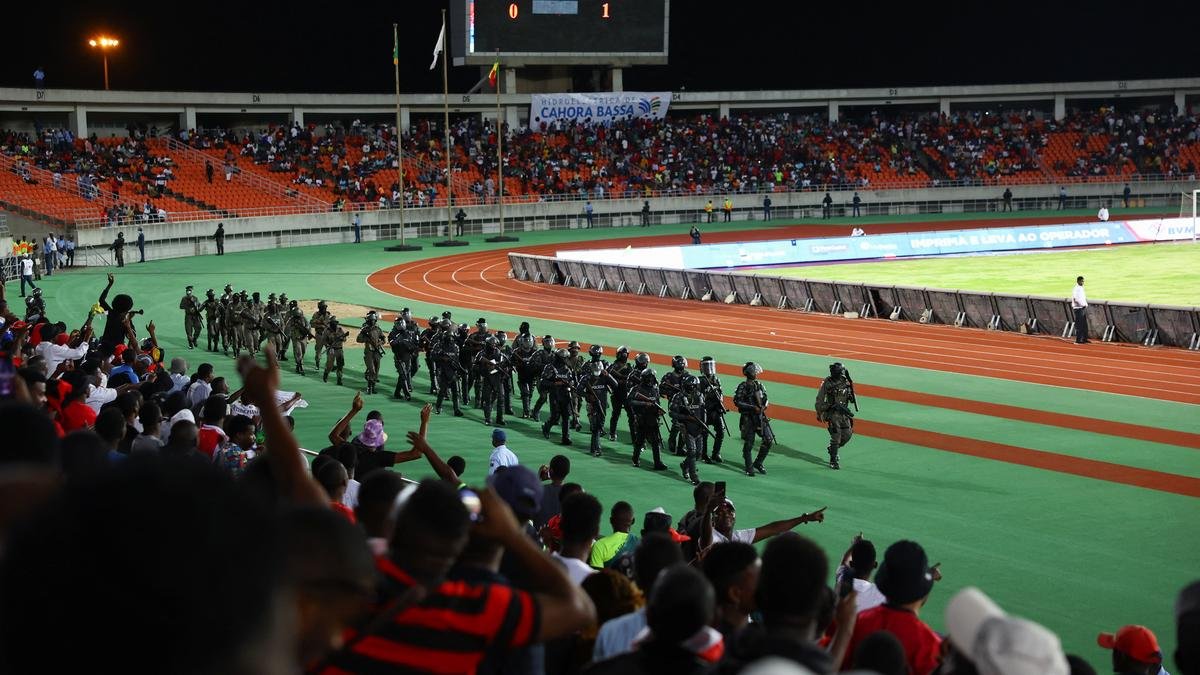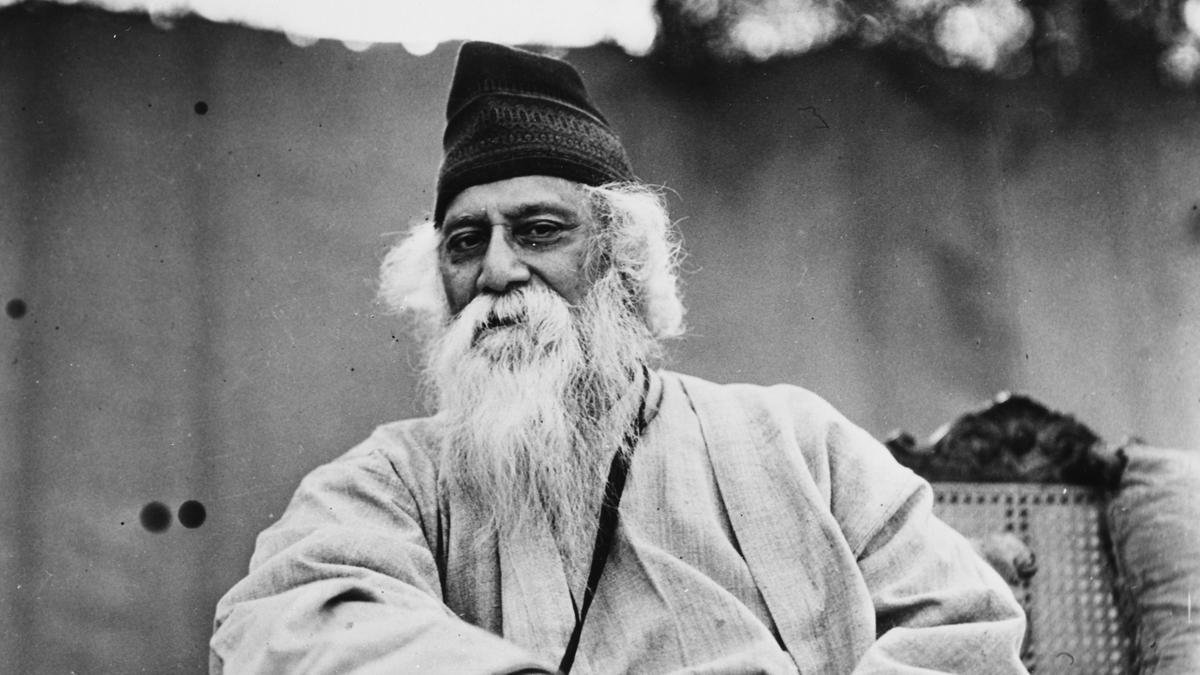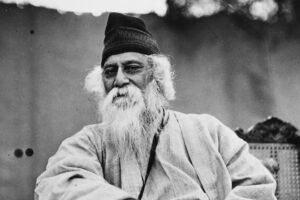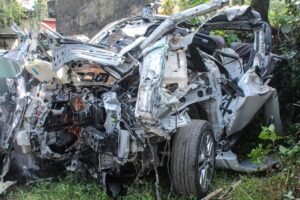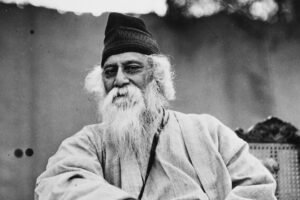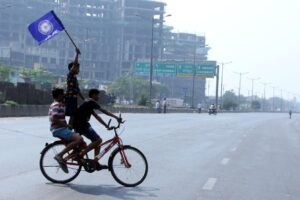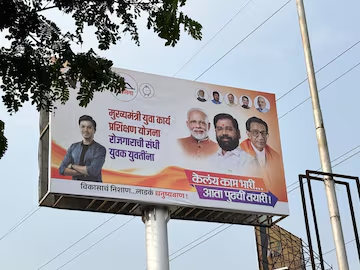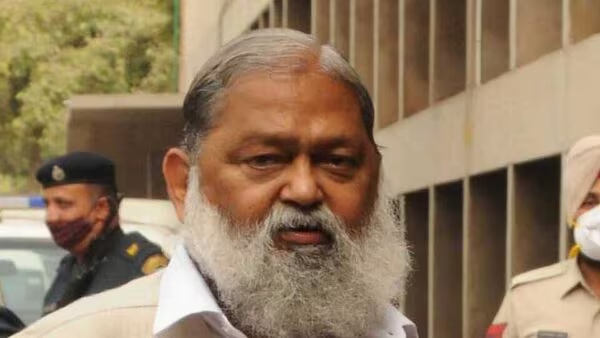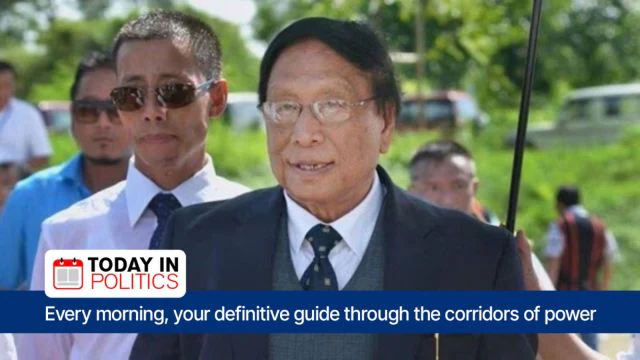Statue Unveiling, Rally & Pan-India Programmes: How Govt Plans To Mark Birsa Munda’s Birth Anniversary
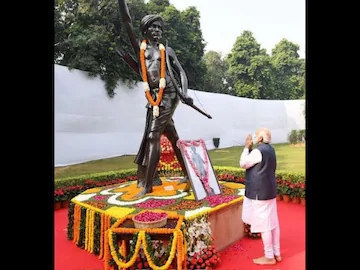
The Modi administration’s efforts in promoting tribal welfare will be prominently highlighted, emphasizing that the Prime Minister played a key role in appointing a tribal woman, Droupadi Murmu, as the President of India.
On November 15, Prime Minister Narendra Modi will be at the forefront of honoring ‘Janjatiya Gaurav Diwas’ nationwide, overseeing numerous events taking place throughout the country.
On the occasion commemorating the 150th birth anniversary of Birsa Munda, PM Modi is scheduled to visit Jamui. Jamui holds significance as it is the constituency represented by Union minister and LJP MP Chirag Paswan.
Sources have indicated that the prime minister is scheduled to reveal a statue of Birsa Munda and conduct a public gathering in celebration of the event.
Additionally, Union ministers and Members of Parliament will journey nationwide to conduct events recognizing Munda’s efforts towards uplifting the tribal society.
According to a source speaking to CNN-News18, events such as paying homage to tribal traditions, commemorating tribal legacy, conducting walking pilgrimages, recognizing distinguished tribal members, and hosting activities to educate individuals, particularly young people, about Munda’s legacy and dedication will be arranged nationwide.
The Modi government’s efforts in promoting tribal welfare will be highlighted prominently, emphasizing PM Modi’s role in appointing Droupadi Murmu, a tribal woman, as the President of India.
India harbors a rich tapestry of tribal communities, with the Scheduled Tribe (ST) populace numbering 10.45 crore, representing 8.6 percent of the total population as per the 2011 Census data. The country hosts more than 705 unique tribal groups residing in various regions, many of which are secluded and challenging to reach, as stated in an official government communication.
Since 1974-75, the Indian government has been dedicated to enhancing tribal development through initiatives like the Tribal Sub-Plan (TSP), later transformed into the Scheduled Tribe Component (STC) and the Development Action Plan for Scheduled Tribes (DAPST). These strategies have effectively coordinated efforts across different ministries to promote the welfare of tribal communities.
The financial investment has seen a substantial surge, as the DAPST budget has escalated from Rs 25,000 crore per year to Rs 1.2 lakh crore by 2023-24. In the Union Budget 2024-25, the allocation for the Ministry of Tribal Affairs has been boosted to Rs 13,000 crore, marking a 73.60 percent rise from the previous year’s projection, as per an official government announcement.
On the 2nd of October 2024, Prime Minister Modi inaugurated the Dharti Aaba Janjatiya Gram Utkarsh Abhiyan in Hazaribag, Jharkhand. This extensive initiative, with a budget exceeding Rs 79,150 crore, is designed to bridge crucial gaps in social infrastructure, healthcare, education, and livelihood enhancement in around 63,000 tribal villages. Extending its benefits to more than five crore tribal individuals across 549 districts and 2,740 blocks, the program covers 30 states and Union Territories. It consolidates 25 interventions from 17 ministries and government departments of India.
The foundation for initiatives falling under the Pradhan Mantri Janjati Adivasi Nyaya Maha Abhiyan (PM-JANMAN) was laid by the prime minister. Valued at more than Rs 1,360 crore, these initiatives aim to enhance road connectivity, develop Anganwadis and multipurpose centers, and erect school hostels. Moreover, the government has committed to electrifying in excess of 75,800 households belonging to Particularly Vulnerable Tribal Groups (PVTGs). Furthermore, the government has put into operation 275 mobile medical units and 500 Anganwadi centers. In addition, the establishment of 250 Van Dhan Vikas Kendras and the provision of access to clean drinking water through the ‘Nal se Jal’ scheme to over 5,550 PVTG villages have been highlighted in the statement.
A group of four to five Union ministers, led by Sports minister Mansukh Mandaviya, has been assembled by the prime minister for each respective state in the BJP and NDA to commemorate this event.
During a recent gathering where PM Modi convened with chief ministers while attending an event in Haryana, he highlighted the intention of his alliance government to recognize revered figures who may have been overlooked. Encouraging the participation of all NDA partners and chief ministers present, PM Modi shared plans to honor these unsung heroes in upcoming programs.
The government’s agenda includes commemorating not only the 150th birth anniversary of Birsa Munda but also upcoming celebrations for the birth anniversaries of Sardar Vallabhbhai Patel and Atal Bihari Vajpayee, among others. Emphasizing tribute to the dedication of freedom fighters and the imminent 75th anniversary of India’s Constitution formed a key part of the discussions held by the prime minister during the meeting.
At the moment of this festivity, both Jharkhand and Maharashtra, states with a significant tribal population, are gearing up for their upcoming assembly elections.
Birsa Munda emerged as a revered leader during the tribal uprising against British colonial rule, championing the cause of tribal rights and playing a pivotal role in the struggle for independence.
The slogan attributed to Birsa Munda that challenged the British Raj, “Abua raj ete jana, maharani raj tundu jana” (“Let the kingdom of the queen be ended and our kingdom be established”), continues to be commemorated.
In 2021, during his second term in office, Prime Minister Modi’s cabinet made the decision to commemorate Birsa Munda’s birthday annually as ‘Janjatiya Gaurav Diwas’ to pay tribute to his legacy.
In Jharkhand, the tribals regard Munda as a divine figure, known as ‘Bhagwan’, for his resistance against Christian conversions and defiance of British colonialism.

